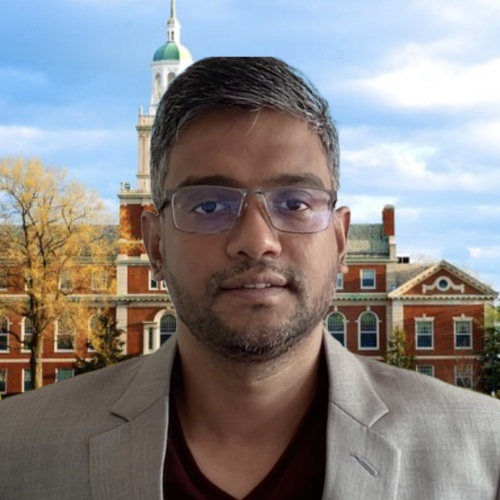Dr. Mirza Galib, Assistant Professor of Chemistry, Howard University
Learning AB Initio Forces by Artificial Neural Network for Accelerated Molecular Simulations
The Department of Chemistry Presents: Dr. Mirza Galib, Assistant Professor, Howard University
Recent development of machine learning based force fields have significantly broadened the scope of molecular simulations. Recently supervised learning techniques have been used to learn ab initio forces and also to refine the parameterization of traditional physically motivated potentials. In particular, those employing artificial neural network (ANN) representations (commonly known as ANN potentials) have demonstrated their utility in the prediction of material properties and in the accurate calculation of thermodynamic and kinetic properties. However, employing ANN for more complex molecular environment is still challenging, especially to tackle sufficient data generation and learning the long-range interaction in an inhomogeneous environment. In this talk, I will discuss our recent progress in developing a protocol to learn the ab initio forces by an artificial neural network for bulk water, air-water interface and the thermodynamics and kinetics of ion-pair dissociations. Our works show that the quality of the data set is crucial to determine the quality of the trained ANN model in a complex environment. I will also discuss how a long-time classical simulation can be used to generate efficient datasets for learning ab initio forces.
BIO
Mirza Galib is currently an Assistant Professor in the Department of Chemistry at Howard University. He received his B.S. and M.S. in Applied Chemistry from the University of Dhaka (Bangladesh), and his Ph.D. in Chemistry from the University of Alberta (Canada). He then worked as a post-doctoral research associate at Pacific Northwest National Lab, UC Berkeley, and the University of Louisville. In 2022, he has started his independent career as an Assistant Professor in the Chemistry Department at Howard University. His research expertise and interest are in developing and employing computational tools based on statistical mechanics, quantum mechanics, and machine learning to study fundamental details of molecular properties in complex environments. Specific areas of current interest include understanding concentrated electrolytes and solid-electrolyte interfaces relevant to basic energy science.

